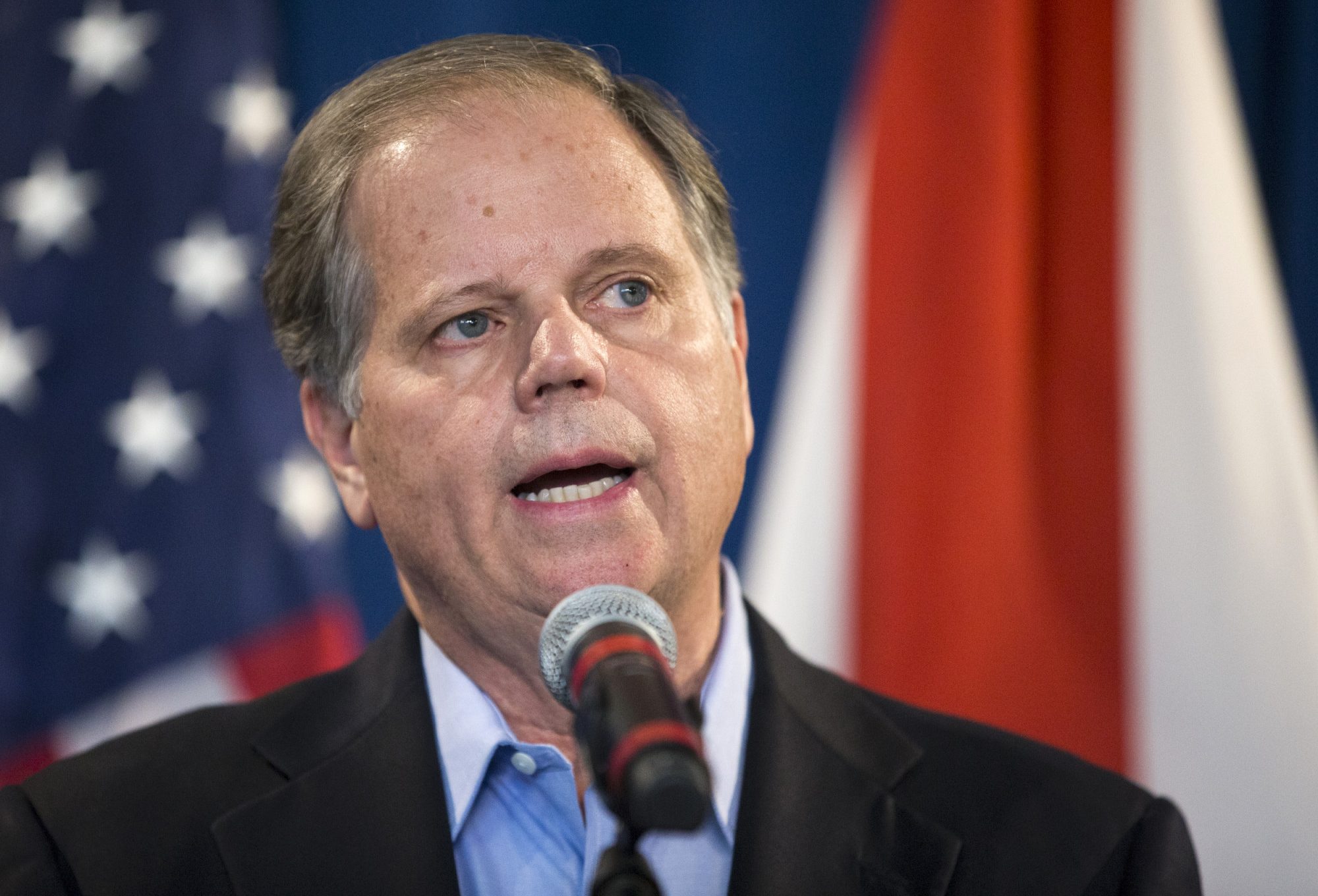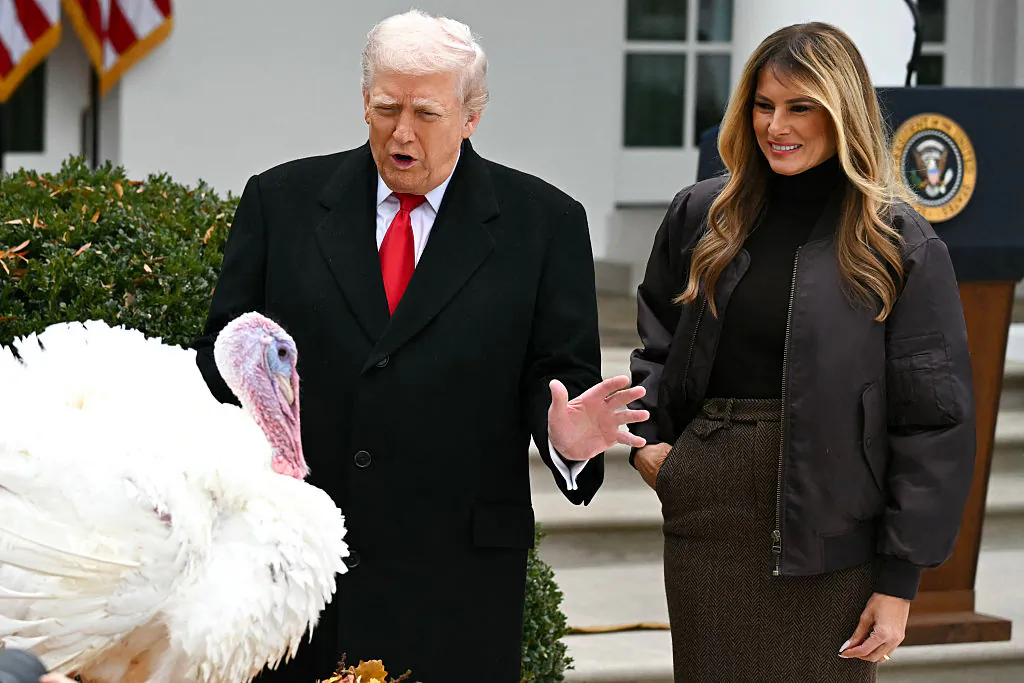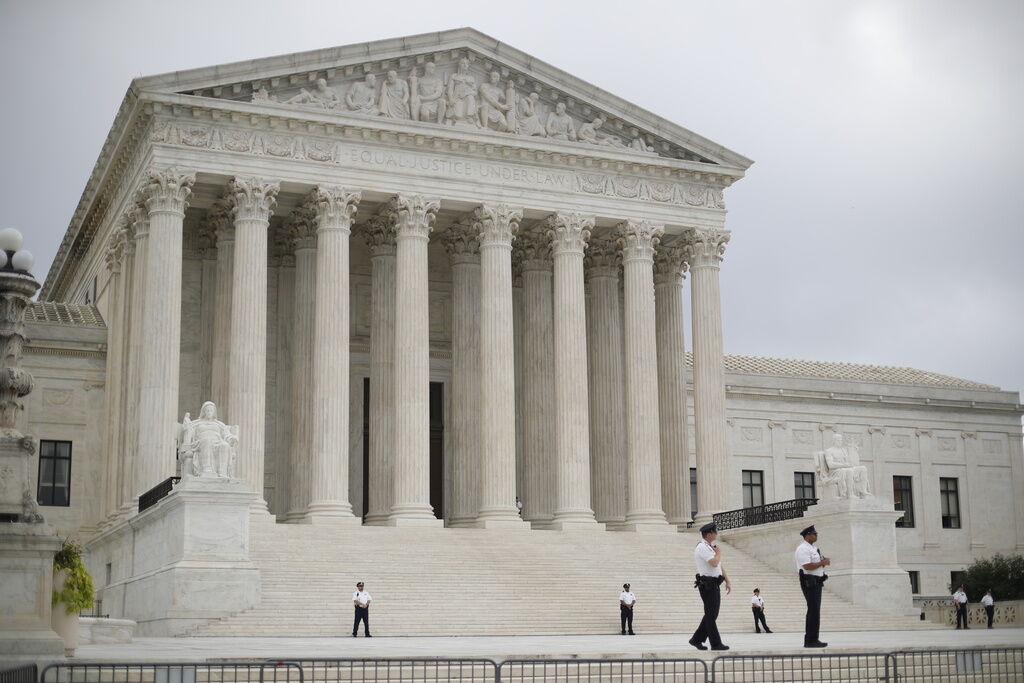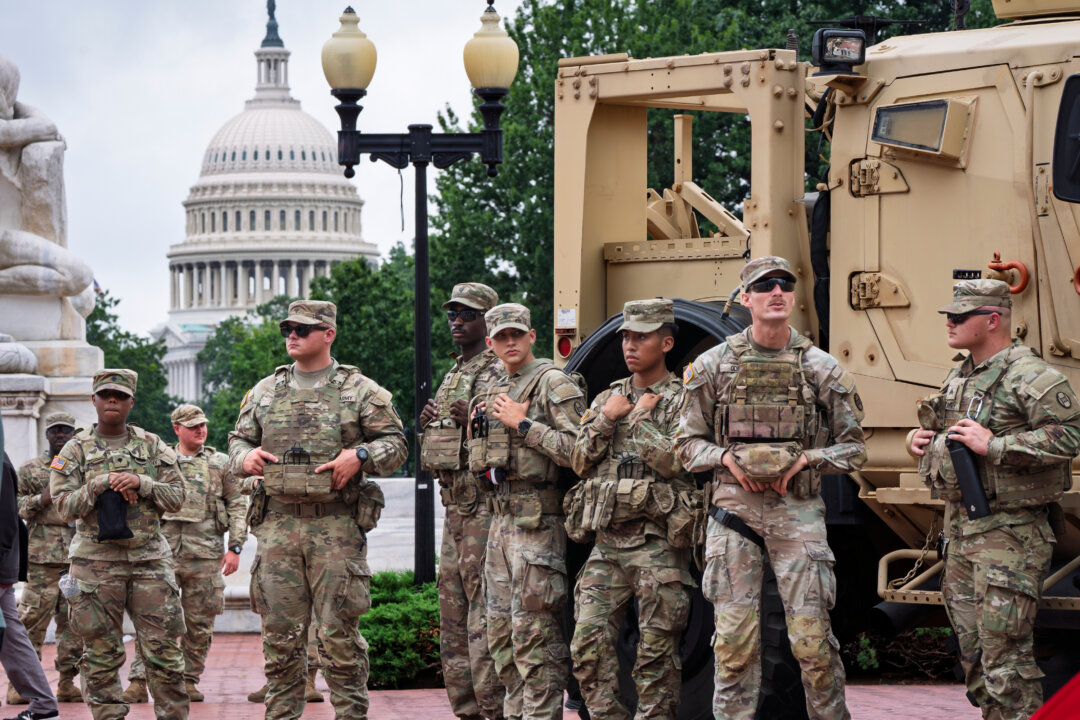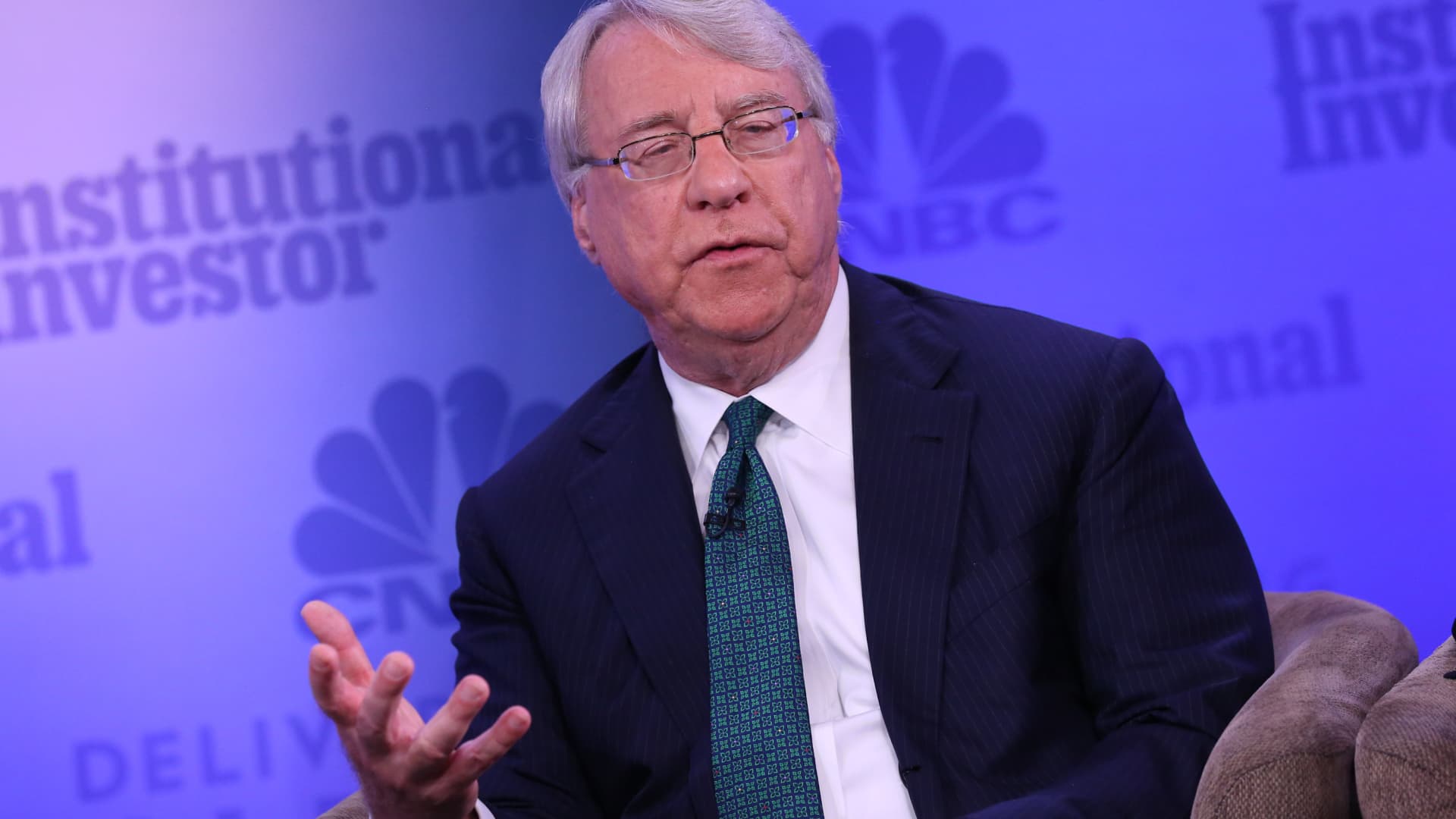What is CASR? Inside the radical collective that ties Delhi’s ‘anti-pollution’ protestors to Harsh Mander, Umar Khalid, Sharjeel Imam and Imran Masood – The network runs deep
On 23rd November, the so-called ‘anti-pollution’ protest at C-Hexagon near India Gate in Delhi, spearheaded by left-leaning student organisations Bhagat Singh Chhatra Ekta Manch (bsCEM) and The Himkhand, quickly spiralled into a spectacle of glorified Naxalism and violence. Protesters, who claimed to have gathered to demonstrate against rising pollution in the National Capital, openly hailed slain Naxal commander Madvi Hidma. They even attacked police personnel with pepper spray. As a result of the violence, 22 individuals have been booked. So far, police have arrested 16 of them, out of which 15 were sent to judicial remand and one was sent to a juvenile safe house. As the legal action against these individuals and groups intensified, their digital footprint has exposed a deeply problematic history. Authorities have also invoked Section 197 of the Bharatiya Nyaya Sanhita, which pertains to acts or communications that threaten India’s sovereignty, unity, integrity or security. bsCEM is one of the 40+ organisations that formed a collective called “Campaign Against State Repression” or CASR. On Instagram, they run a page called “Kis Kis Ko Qaid Karoge”. They continuously campaign for the release of so-called “political prisoners”. The collective’s history can be traced back to 2018. On social media, there presence can be traced back to 2022 when they started a campaign for the release of now-deceased Naxalite professor Gokrakonda Naga Saibaba (GN Saibaba), who was in jail for his involvement with Naxal organisations. GN Saibaba died in prison. Source: Instagram Earlier, there was a page with its Hindi name “Kis Kis Ko Qaid Karoge” that was created in 2018. Source: Facebook Information about the organisations under CASR banner reveals questionable past and associations. Interestingly, many of these organisations had supported propaganda event ‘Let Kashmir Speak’ in March 2023. The event was cancelled after Delhi Police revoked the permission for the event following uproar. All India Revolutionary Students Organisation (AIRSO) All India Revolutionary Students Organisation (AIRSO) is the student wing of Communist Party of India (Marxist–Leninist) Red Star which came into existance in 2009. While AIRSO presents itself as a students’ organisation, its own literature makes the ideology clear. The organisation romanticises the violent insurgencies of the 1960s and 70s. It idolises Naxalbari as a “great struggle” and frames the bloodshed of that era as a noble awakening of India’s youth. Source: Facebook Its stated objective is to build a “powerful, broad-based” nationwide students’ front aligned with the same revolutionary ideology that fuelled decades of extremist violence. AIRSO is not a students’ body, it is an ideological grooming platform that glorifies Naxalism under the guise of student activism. All India Students’ Association (AISA) All India Students’ Association (AISA) is a radical students’ movement. It was formed in 1990 and wraps itself in lofty rhetoric about “revolutionary transformation” and “a new world”, while functioning as a disruptive, ideological nuisance across university campuses, particularly in Jawaharlal Nehru University (JNU), where it proudly waves its red flag year after year. It is the student wing of Communist Party of India (Marxist–Leninist) Liberation. Recently, they condemned the killing of India’s most wanted Naxal Madvi Hidma. View this post on Instagram A post shared by All India Students' Association (@aisa_official_) AISA’s literature is packed with the usual jargon about neo-liberal assaults, imperialist aggression and anti-people politics. It celebrates confrontational street politics and frames its activism as a fight against everything from fee hikes to American imperialism. It is less a students’ organisation and more a campus-based radical machinery that thrives on agitation, perpetual grievance and ideological posturing, all while destabilising academic spaces under the guise of student rights. All India Students’ Federation (AISF) All India Students’ Federation (AISF), formed in 1936, is the student wing of the Communist Party of India. It routinely projects itself as the “first” student federation to work for India’s independence, yet today it functions largely as an ideological relic kept alive to serve the CPI’s political interests on campuses. Source: Facebook AISF’s self-glorifying narrative leans heavily on invoking names like Jawaharlal Nehru, APJ Abdul Kalam and Atal Bihari Vajpayee, as though the organisation still bears any resemblance to what existed in the pre-independence era. In reality, AISF has long drifted from student-centric issues and now operates as a tired, doctrinaire extension of CPI’s outdated politics, clinging to nostalgia rather than addressing the real concerns of modern students. Association for Protection of Civil Rights (APCR) The Association for Pro
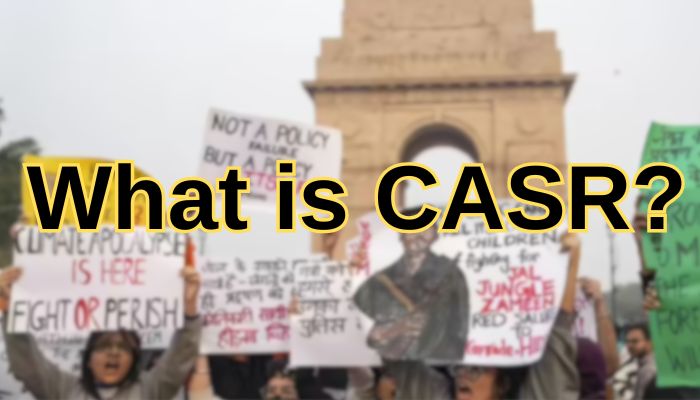


On 23rd November, the so-called ‘anti-pollution’ protest at C-Hexagon near India Gate in Delhi, spearheaded by left-leaning student organisations Bhagat Singh Chhatra Ekta Manch (bsCEM) and The Himkhand, quickly spiralled into a spectacle of glorified Naxalism and violence. Protesters, who claimed to have gathered to demonstrate against rising pollution in the National Capital, openly hailed slain Naxal commander Madvi Hidma. They even attacked police personnel with pepper spray.
As a result of the violence, 22 individuals have been booked. So far, police have arrested 16 of them, out of which 15 were sent to judicial remand and one was sent to a juvenile safe house. As the legal action against these individuals and groups intensified, their digital footprint has exposed a deeply problematic history.
Authorities have also invoked Section 197 of the Bharatiya Nyaya Sanhita, which pertains to acts or communications that threaten India’s sovereignty, unity, integrity or security.
bsCEM is one of the 40+ organisations that formed a collective called “Campaign Against State Repression” or CASR. On Instagram, they run a page called “Kis Kis Ko Qaid Karoge”. They continuously campaign for the release of so-called “political prisoners”. The collective’s history can be traced back to 2018. On social media, there presence can be traced back to 2022 when they started a campaign for the release of now-deceased Naxalite professor Gokrakonda Naga Saibaba (GN Saibaba), who was in jail for his involvement with Naxal organisations. GN Saibaba died in prison.
Earlier, there was a page with its Hindi name “Kis Kis Ko Qaid Karoge” that was created in 2018.
Information about the organisations under CASR banner reveals questionable past and associations. Interestingly, many of these organisations had supported propaganda event ‘Let Kashmir Speak’ in March 2023. The event was cancelled after Delhi Police revoked the permission for the event following uproar.
All India Revolutionary Students Organisation (AIRSO)
All India Revolutionary Students Organisation (AIRSO) is the student wing of Communist Party of India (Marxist–Leninist) Red Star which came into existance in 2009. While AIRSO presents itself as a students’ organisation, its own literature makes the ideology clear. The organisation romanticises the violent insurgencies of the 1960s and 70s. It idolises Naxalbari as a “great struggle” and frames the bloodshed of that era as a noble awakening of India’s youth.
Its stated objective is to build a “powerful, broad-based” nationwide students’ front aligned with the same revolutionary ideology that fuelled decades of extremist violence. AIRSO is not a students’ body, it is an ideological grooming platform that glorifies Naxalism under the guise of student activism.
All India Students’ Association (AISA)
All India Students’ Association (AISA) is a radical students’ movement. It was formed in 1990 and wraps itself in lofty rhetoric about “revolutionary transformation” and “a new world”, while functioning as a disruptive, ideological nuisance across university campuses, particularly in Jawaharlal Nehru University (JNU), where it proudly waves its red flag year after year. It is the student wing of Communist Party of India (Marxist–Leninist) Liberation. Recently, they condemned the killing of India’s most wanted Naxal Madvi Hidma.
AISA’s literature is packed with the usual jargon about neo-liberal assaults, imperialist aggression and anti-people politics. It celebrates confrontational street politics and frames its activism as a fight against everything from fee hikes to American imperialism.
It is less a students’ organisation and more a campus-based radical machinery that thrives on agitation, perpetual grievance and ideological posturing, all while destabilising academic spaces under the guise of student rights.
All India Students’ Federation (AISF)
All India Students’ Federation (AISF), formed in 1936, is the student wing of the Communist Party of India. It routinely projects itself as the “first” student federation to work for India’s independence, yet today it functions largely as an ideological relic kept alive to serve the CPI’s political interests on campuses.
AISF’s self-glorifying narrative leans heavily on invoking names like Jawaharlal Nehru, APJ Abdul Kalam and Atal Bihari Vajpayee, as though the organisation still bears any resemblance to what existed in the pre-independence era. In reality, AISF has long drifted from student-centric issues and now operates as a tired, doctrinaire extension of CPI’s outdated politics, clinging to nostalgia rather than addressing the real concerns of modern students.
Association for Protection of Civil Rights (APCR)
The Association for Protection of Civil Rights (APCR) presents itself as a non-profit working to “bridge the gap between law and justice”, but its track record tells a different story. Formed in 2006 and registered under the Societies Registration Act, the organisation claims to offer free legal aid, financial assistance and legal literacy programmes through workshops and seminars.
Behind this polished description, however, APCR has repeatedly appeared in controversial cases, often extending legal aid to individuals accused in violent incidents such as the Sambhal violence and the anti-Hindu Delhi riots. Its so-called “fact-finding reports” read less like neutral documentation and more like one-sided propaganda designed to shield certain groups while vilifying others.
APCR’s leadership includes senior lawyers and long-time activists, yet the organisation functions less as a civil rights body and more as an advocacy front that selectively deploys the language of rights to defend the accused in communally charged cases.
APCR also has strong ties with the likes of Harsh Mander and Saba Naqvi. Harsh Mander who is known for his anti-India activities. In May this year, he tried to negotiate with the government on behalf of Naxals who are being neutralised under Operation Kagar. During anti-CAA protests, he was seen inciting Muslims against the central government using lies and fake information about the Citizen (Amendment) Act. In 2023, Ministry of Home Affairs had recommended inquiry against his NGO and in 2024, Central Bureau of Investigation had raided premises linked to him in FCRA violation case.
Saba Naqvi is known for her problematic remarks and her consistent anti-Hindu stance. In June 2022, she insulted the Shivling found at Gyanvapi. In May this year, when India counter-attacked Pakistan after the deadly Pahalgam terrorist attack, Naqvi was among the left-leaning, self-styled secular warriors who rushed to call for peace between India and Pakistan.
Imran Masood or “Boti Boti Masood”, who had once threatened to chop Prime Minister Narendra Modi into pieces, is also linked to APCR. His venomous remarks made him the “blue-eyed boy” of Islamic fundamentalists.
Bhim Army
The Bhim Army, founded in 2015 by Satish Kumar, Vinay Ratan Singh and Chandrashekhar Azad, projects itself as an Ambedkarite organisation working for Dalit rights. In reality, it has evolved into a hyper-confrontational outfit that thrives on street mobilisation, aggressive posturing and polarising identity politics. While it claims to run hundreds of free schools in Uttar Pradesh, the group’s public footprint is dominated far more by provocation, rallies, clashes and attempts to build a Dalit–Muslim political coalition.
Its stated mission of “direct action based on confrontation” speaks for itself. Led by Chandrashekhar Azad, the organisation routinely presents itself as a defender of “Bahujan identity” while openly positioning the BJP as its primary political enemy. Over the years, Bhim Army has found itself at the centre of violent flashpoints, from the 2017 Saharanpur clashes to its aggressive role in the anti-CAA protests, where its supporters engaged in street confrontations.
Despite repeatedly claiming constitutional loyalty, the group has consistently embraced high-voltage agitation over constructive engagement, operating more like a pressure group seeking to leverage caste fault lines for political mileage than a genuine rights-based organisation.
Chandrashekhar Azad ‘Ravan’, who is now a Member of the Parliament, has been accused of ruining the lives of multiple girls by a woman named Rohini Ghavari. In June this year, Azad’s party members were seen creating mahyem in Prayagraj. He has repeatedly pushed for reservations in the Private Sector. In February 2024, he was accused of threatening administrative officials that he would file a case against them under the SC/ST Act. Notably, the Act, which is meant to guard the marginalised communities from atrocities, is often used by some members of the community for vested interests. Recently, the Special SC/ST Court in Lucknow sentenced a woman to 3.5 years in prison for filing a fake SC/ST case.
Bhim Army Student’s Federation (BASF)
BASF is the student wing of Bhim Army.
Bhagat Singh Chhatra Ekta Manch (bsCEM)
Bhagat Singh Chhatra Ekta Manch (bsCEM) presents itself as a student-led “democratic” collective, but its own material makes the ideological tilt unmistakable. Formed in 2018 at Delhi University, bsCEM openly grounds itself in the revolutionary doctrines of Bhagat Singh and Charu Mazumdar, even declaring that students must “smash the old and create a new society” as part of a broader class struggle. This is not student activism, it is old-school Marxist agitation repackaged for DU campuses.
Its pamphlets repeatedly invoke Mao, call the education system “rotting”, and position students as foot soldiers who must integrate with “oppressed masses”, join bastis, oppose NEP, resist so-called “anti-people” policies, and fight “Hindutva ideology”. The organisation boasts of joining protests on CAA-NRC, the farmers’ movement, campus harassment cases, and even publishes a magazine pushing a self-proclaimed “revolutionary” worldview.
bsCEM functions less like a student support body and more like a radical mobilisation unit operating inside Delhi University. It thrives on agitation, ideological indoctrination and anti-establishment rhetoric, all while masquerading as a harmless student collective.
COLLECTIVE
COLLECTIVE describes itself as a student-youth movement “building a socialist future for India”, but its programme reads like an unfiltered ideological manifesto rather than anything remotely student-centric. Adopted during its first Delhi State Conference in March 2021, its worldview is built entirely on the classic far-left narrative that is, capitalism is collapsing, fascism is rising, and only a revolutionary uprising led by students and the “toiling people” can save the country.
According to COLLECTIVE, India today is under the “ascendancy of far-Right fascist forces”, empowered by neo-liberal capitalism, global finance, and supposedly anti-scientific, anti-secular tendencies. The organisation casts the RSS and BJP as central villains, accuses the state of “criminalising every voice of dissent”, and repeatedly frames modern governance as a slide into authoritarianism. Every policy from NEP to economic reforms is portrayed as a corporate conspiracy backed by imperialist interests.
The group situates students not as learners but as frontline participants in a global anti-capitalist struggle. It romanticises historical uprisings, glorifies Naxalbari, and constantly invokes revolutionaries from Bhagat Singh to Latin American agitators. Education, in its view, is merely another “apparatus of dominant hegemony” that must be resisted, overturned and repurposed towards class struggle.
COLLECTIVE recently came out in support of Kashmir Times after its office was raided. Police had recovered ammunition from the office.
On 22nd January 2024, the day when Ram Lalla Pran Pratishtha took place at Ram Mandir, Ayodhya, COLLECTIVE wrote on X “BJP-RSS terrorism unleashed across India”.
COLLECTIVE is not a student organisation but a doctrinaire Marxist platform pushing for revolutionary transformation. Its literature is steeped in crisis narratives, anti-state rhetoric and ideological alarmism. Under the veneer of student engagement, it aggressively calls for dismantling capitalism, patriarchy, caste structures, electoral politics and even the existing idea of the Indian state, making it one of the most openly radical groups operating on campuses today.
Committee for Release of Political Prisoners (CRPP)
The Committee for the Release of Political Prisoners (CRPP), founded in 2003 by Rona Wilson, Amit Bhattacharyya and SAR Geelani, has been described by the Ministry of Home Affairs as a front of the banned CPI (Maoist). Operating under the banner of “civil liberties”, it campaigns for the unconditional release of individuals it labels as political prisoners, many of whom face serious charges linked to extremist violence.
One of its founders, Rona Wilson, has himself been at the centre of multiple controversies. Pune Police had earlier recovered a sensational letter from his Delhi residence suggesting that Maoist elements were discussing a “Rajiv Gandhi–type” plot to target Prime Minister Narendra Modi, seeking Rs 8 crore to procure M4 rifles and ammunition. Wilson was later arrested in the Bhima Koregaon–Elgar Parishad case, with investigators alleging he coordinated between urban networks and jungle-based Maoist cadres and was a close aide of convicted Naxal ideologue GN Saibaba.
After over six years in prison, Wilson was granted bail by the Bombay High Court on 8 January 2025 due to the prolonged delay in trial and was released on 24 January under strict conditions, including surrendering his passport and regular appearances before the NIA. Though he has long denied Maoist links, Wilson has been repeatedly questioned since his JNU days for his association with figures like SAR Geelani.
Dayar-I-Shauq Students’ Charter (DISSC)
Dayar-i-Shauq Students’ Charter (DISSC) describes itself as a “progressive democratic” mass organisation at Jamia Millia Islamia, but in reality, it functions as a predictable left-wing political bloc on campus. Formed in 2015, it claims to revive debate and dissent, yet its activism has consistently aligned with the broader Left–Islamist ecosystem in Jamia, using student issues as a gateway to push ideological battles rather than academic concerns.
The group’s conduct during campus flashpoints speaks for itself. In June 2022, DISSC joined Islamist groups such as the Campus Front of India (the student wing of the now-banned Popular Front of India) to physically block an ABVP-organised environmental awareness event. Protesters shut Jamia’s gates, chanted “Nara-e-Takbeer Allah-Hu-Akbar”, “ABVP Murdabad” and “ABVP Campus Chhodo”, and prevented environmentalist Imteyaz Ali and DUSU President Akshit Dahiya from even entering the campus. DSSC members held placards calling ABVP “Islamophobic”, branding them “hatemongers”, and invoking Najeeb to whip up sentiment.
In short, DISSC is less a student body and more a frontline participant in the Left–Islamist coalition that routinely polices Jamia’s campus space, suppresses opposing viewpoints and aggressively frames even apolitical events as ideological battlegrounds.
Democratic Student Union (DSU)
The Democratic Students’ Union (DSU) is an openly radical student outfit active in Jawaharlal Nehru University and Delhi University. It is a constituent of the All India Revolutionary Students’ Federation (AIRSF) and explicitly works toward the goals of the so-called “New Democratic Revolution”, a doctrine rooted in far-left extremist ideology rather than any student-centric cause.
DSU is best known for the notoriety it brought to JNU in 2016. On 9 February that year, DSU members and allies organised a protest opposing the execution of Parliament attack convict Afzal Guru and Kashmiri separatist Maqbool Bhat. Slogans such as “Afzal hum sharminda hain, tere qatil zinda hain” were raised on campus. Former DSU leader Umar Khalid, along with Kanhaiya Kumar and Anirban Bhattacharya, was arrested for his role in the incident.
Umar Khalid’s trajectory further showcases DSU’s ideological ecosystem. He was later arrested under UAPA in the larger conspiracy case linked to the anti-Hindu Delhi riots 2020, with investigators alleging his involvement in orchestrating the violence. Khalid’s background too has raised questions, as his father, Syed Qasim Rasool Ilyas, was a member of the now-banned terrorist outfit SIMI.
DSU operates less as a student organisation and more as a hard-left political formation that has repeatedly pushed extremist narratives on campuses under the guise of activism.
Democratic teachers’ Front (DTF)
The Democratic Teachers’ Front (DTF) is a Left-leaning teachers’ organisation in Delhi University that positions itself as a defender of “democratic” academic spaces. It has long been involved in campus agitations, opposing central reforms including the Modi government’s education initiatives, the National Education Policy and the move to scrap the Senate in Panjab University.
Fraternity Movement
The Fraternity Movement is the student wing of the Welfare Party of India and operates with the slogan “Democracy, Social Justice and Fraternity”. Despite this benign framing, the group has repeatedly aligned itself with hardline positions. Fatermity was one of the organisations present at the so-called anti-pollution protests in Delhi.
During the anti-CAA protests in December 2019, its members even blocked Calicut International Airport. The Welfare Party of India itself is led by figures such as Syed Qasim Rasool Ilyas, former member of SIMI and father of Umar Khalid, and has long been associated with Islamist-leaning activism.
Several controversial activists are linked to the Fraternity Movement, including Afreen Fatima and Aysha Renna. Fatima has publicly defended Parliament attack convict Afzal Guru, repeatedly urging people to “revisit” his verdict. She has also questioned the Supreme Court over decisions like the Ram Mandir judgment. Renna, celebrated by sections of the media, openly backed Sharjeel Imam, calling police action against him a “witch hunt” and demanding that cases against him be dropped, despite his inflammatory secessionist speeches.
The Fraternity Movement, therefore, functions not as a student rights platform but as a political extension of the Welfare Party’s ideological ecosystem, frequently championing extremist, polarising and anti-establishment narratives under the cover of campus activism.
Indian Association of People’s Lawyers (IAPL)
The Indian Association of People’s Lawyers (IAPL) presents itself as a collective of “people’s lawyers” committed to justice, equality and human rights. Its constitution frames the Indian state as imperialist and oppressive, calls for resisting “unjust class rule”, and pledges support for anti-imperialist struggles. On paper, it is a national body of lawyers and legal activists; however, the National Investigation Agency’s findings paint a starkly different picture.
According to the NIA chargesheet in the Elgar Parishad case, IAPL is a frontal organisation of the banned CPI (Maoist). Investigators recorded witness statements describing how the group’s activities, fact-finding missions, legal support networks and meetings—often involved individuals suspected to be Maoists. One witness recounted a 2018 Kashmir fact-finding visit where non-lawyers, believed to be Maoist operatives, were present; when this was pointed out to accused Arun Ferreira, he reportedly “just smiled”, reinforcing suspicions about IAPL’s role.
The NIA emphasised that IAPL’s work consistently furthered the Maoist agenda under the guise of legal activism, and that multiple activists linked to Maoist cases operated through it. Although some members resigned citing ideological differences, the agency maintains that the outfit has served as a cover structure providing support to Maoist networks.
Despite its claims of safeguarding human rights, the organisation has repeatedly appeared in investigations as part of the broader urban support system of CPI (Maoist), using legal advocacy and fact-finding missions to shield operatives, influence narratives and advance extremist objectives. The organisation, however, has claimed it has nothing to do with CPI(Maoist).
Nazariya Magazine
Nazariya Magazine is an openly Marxist-Leninist-Maoist publication that frames India as a “semi-colonial, semi-feudal” state under “Brahmanical Hindutva fascism” and positions itself as an ideological weapon for militant revolutionary politics. It insists that Marxism-Leninism-Maoism is the only path to overthrow “class enemies” and build a new socialist order.
In 2024, Nazariya faced a major scandal when one of its own employees accused Mukundan Nair of sexual assault. Instead of supporting her, Nazariya formed an internal committee that recommended vague “rectification” for the accused. When the survivor objected, the organisation expelled her in November 2024 and released statements accusing her of “imperialist ideology”, “non-ideological sexual relationships” and violating “communist morality”, irrelevant attacks used to discredit her and protect the accused.
The survivor later revealed that activists linked to bsCEM had participated in slandering her and spreading false claims. Photographs surfaced showing bsCEM members socialising with Mukundan despite admitting privately that they knew about the allegations. Rather than confronting the misconduct, Nazariya, bsCEM, FACAM and even SfPD escalated the matter into an ideological war, deleting comments, blocking critics and using the survivor’s trauma to score political points.
The episode exposed Nazariya’s hypocrisy, revealing a collective that shields an accused offender while vilifying its own employee to preserve ideological purity.
Rihai Manch
It is a political front that claims to resist repression. It was involved in an array of protests including anti-CAA and farmer protests.
Students’ Federation of India (SFI)
Students’ Federation in India is a left-wing student organisation. OpIndia has covered the organisation extensively. It can be checked here.
United Peace Alliance
The United Peace Alliance is a political front led by Mir Shahid Saleem, positioned as a platform for “resistance against repression” in Kashmir. While it uses the language of peace and rights, the group consistently aligns itself with hardline narratives against the Indian state, particularly after the abrogation of Article 370.
Saleem, the organisation’s chairman, routinely asserts that the Centre has “intimidated”, “frightened” and “oppressed” Kashmiris since 5th August, 2019. Under his leadership, the United Peace Alliance has organised conferences, protested against marking 5th August as a day of celebration, and instead promoted it as “Black Day”.
The group’s activities revolve around amplifying anti-370 sentiment, portraying constitutional changes as repression, and creating political mobilisation around these claims. Rather than contributing to peace, the United Peace Alliance functions as yet another pressure group that keeps separatist rhetoric alive under the garb of rights advocacy.
Youth 4 Swaraj (Y4S)
Youth 4 Swaraj (Y4S) is the student-youth wing of Yogendra Yadav’s political party, Swaraj India. While it projects itself as a platform for “alternative politics” and youth mobilisation on issues ranging from drought relief to campus activism, the organisation has been marred by serious allegations of sexual assault and institutional apathy.
In 2020, a former Y4S member publicly accused Manish Kumar, the then President of Youth 4 Swaraj, of sexually assaulting her. She stated that she had informed Yogendra Yadav and other senior leaders about the abuse, but her complaints were ignored. According to her account, she was mentally traumatised by members of Swaraj India and eventually forced to resign. Even after she reported the assault, Manish Kumar continued to represent Y4S at the Singhu border during the farmers’ protests.
The survivor also alleged that when she approached Yogendra Yadav directly, he responded with silence, while Avik Saha, the Vice President of Swaraj India, merely asked her to go to the police. In her resignation letter, shared on Instagram, she wrote that the organisation protected abusers while shifting the burden and stigma onto women who spoke up.
Other organisations include ASA, BSM, CEM, CSM, CTF, LAA, Forum Against Repression Telangana, Karnataka Janashakti, Mazdoor Adhikar Sangathan, Mazdoor Patrika, NAPM, Nishant Natya Manch, New Trade Union Initiative (NTUI), People’s Watch, Samajwadi Janparishad, Samajwadi Lok Manch, Bahujan Samjavadi Manach, Women Against Sexual Violence and State Repression (WSS), Nowruz, Innocence Network and others.
Taken together, the events at India Gate and the profiles of these outfits make it clear that the ‘anti-pollution’ protest was never about air quality, it was about pushing a coordinated ideological agenda that glorifies Naxals, undermines Indian institutions and weaponises campuses, courts and “civil rights” language against the country. From students’ bodies and “rights” collectives to lawyers’ fronts and Kashmir pressure groups, the network around bsCEM and CASR is not accidental, it is an ecosystem that normalises anti-India rhetoric while seeking impunity for those facing serious charges. This report is only the beginning of an OpIndia series that will systematically expose the organisational web of pro-Naxal, Left-leaning groups that are indulging in anti-India activities under various respectable sounding labels.





